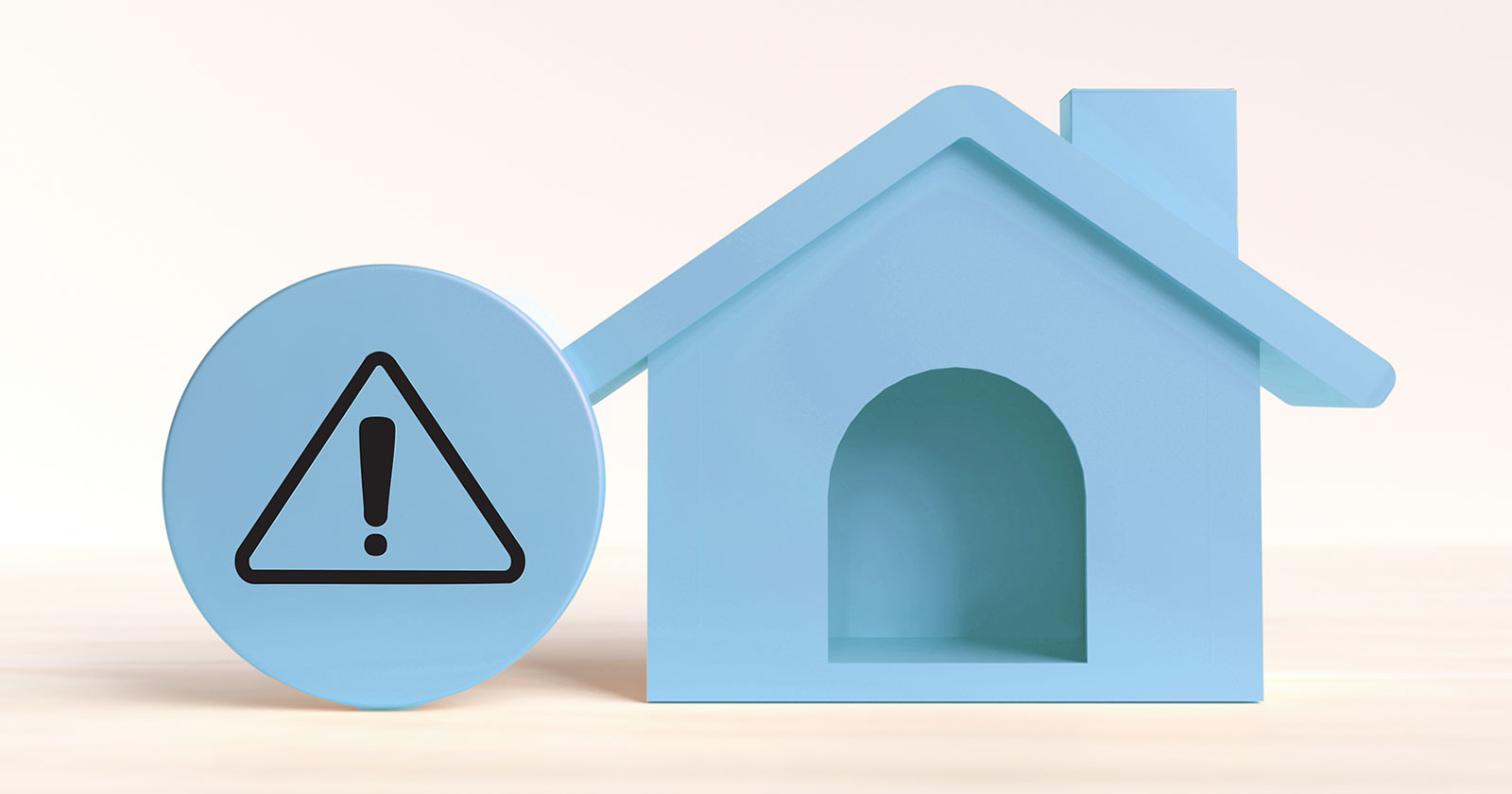For lenders, error-free property appraisals help ensure accurate financing while avoiding costly mistakes. That is why accurate home appraisals are a valuable benchmark in residential real estate financing. Unfortunately, the appraisal industry is not without its fair share of unethical actors. Inaccurate, phony appraisals from scammers attempting to jack up prices or hide property flaws for quick profits can subject buyers and their lending partners to an uphill battle.
Understanding and identifying appraisal red flags can not only help lenders offer the best solution for their clients but also avoid money pitfalls. In this article, we’ll further explain the importance of accurate valuations in real estate, common appraisal red flags to look for, and how to address them.
Understanding and identifying appraisal red flags can not only help lenders offer the best solution for their clients but also avoid money pitfalls. In this article, we’ll further explain the importance of accurate valuations in real estate, common appraisal red flags to look for, and how to address them.
Why Accurate Appraisals Matter
Accurate home appraisals are essential because they protect the interests of all sides (buyer, seller, and lender), helping to facilitate transactions. For lenders, accurate appraisals provide several additional benefits, including:
- Proper Pricing: Lenders looking to accurately finance a property based on location, market conditions, and overall potential receive peace of mind with an accurate home appraisal.
- Better Loan Terms: An inaccurate appraisal can lead to over-funding or inadequate funding to clients, which can complicate lending processes.
- Smooth Transactions: Establishing a fair market value reduces disputes among buyers, sellers, and lenders, creating a more seamless transaction process.
- Minimizes Legal Risks: Inaccurate, false appraisals can potentially lead to costly and time-consuming legal disputes and accusations of fraud later down the road.
On the other hand, professional, ethical home appraisals ensure clients have access to accurate refinancing and home equity loan programs. While the home appraisal process is just one of several steps in the home lending process, it bears significant importance in the fluency and success of your and your client’s business.
Home Appraisal Red Flags Checklist
What are red flag indicators in residential real estate appraisals?
In the appraisal industry, red flag indicators are common warning signs–or hints–that an appraisal and real estate appraiser is inaccurate. Let’s look at the most common appraisal red flags and ways to address or avoid them:
Significant Value Discrepancies
One of the most common appraisal red flags is value discrepancies, or when the property’s estimated value significantly differs from other comps in the area. If a property is valued at 10%+ higher than similar nearby comps or online marketplaces (i.e., MLS, RedFin, Zillow), and has drastically different valuations, it’s best to get an independent appraisal.
How to Address/Avoid Value Discrepancies
- Research Comps: Don’t simply take an appraiser’s word on comps. Ask for photos, locations, and details about the pricing adjustments made for each comp. From there, do your research to determine the accuracy and validity of the comp.
- Provide Your Own Comps: If valuations seem drastically different, or if you believe the comps being used to estimate values are inaccurate, compile a list of similar properties in and around the home’s neighborhood and request a reconsideration from the appraiser.
- Get a Second Opinion: As mentioned, if a home appraisal seems drastically overpriced and the appraiser is unwilling to compromise, request a second opinion from the seller, preferably from an independent appraiser.
Inconsistent Comps
Perhaps value discrepancies aren’t readily apparent. Inconsistent comparable properties are another key appraisal red flag for lenders. Whether clients are buying or selling their property, erroneous, vastly different comps can sway valuations and lead to inaccurate valuations, lost profits, and risky lending prospects.
Some of the most common indicators of inconsistent comps include:
Some of the most common indicators of inconsistent comps include:
- Location: Homes in significantly different neighborhoods and markets are not good comps for your property.
- Circumstances: Sometimes, recently sold comps are sold under unique circumstances (foreclosures, family sales, etc.) and can skew appraisal estimates.
- Features: Comps with vastly different features (square footage, amenities, number of rooms) with inaccurate price adjustments can compromise the validity of an appraisal..
How to Address/Avoid Inconsistent Comps
- Gather Information: Ask appraisers for any and all information on the comps being used for the appraisal.
- Challenge Inappropriate Comps: If you feel a comp is too far out of market or has an outdated sales date, challenge the validity of the estimates with the appraiser.
- Request Price Adjustments: If price adjustments seem too small or too big for a comp based on feature disparities, request further price adjustments.
Unpermitted Renovations
Unpermitted, unidentified renovations or additions are a significant and potentially dangerous appraisal red flag that can impact a property’s overall value and leave you vulnerable to legal ramifications. Obtaining and researching home records is pivotal for identifying unpermitted additions to a property.
Common indicators of unpermitted construction include:
Common indicators of unpermitted construction include:
- Square footage discrepancies between tax records and other listing information.
- Finished basements, attics, or garages that are not reflected in any official property records.
- Obvious and out-of-place additions that don’t match the quality or style of the home’s construction.
- Any recently completed construction without viable permit documentation.
How to Address/Avoid Unpermitted Renovations
- Retroactively request documentation and permits for any home additions.
- Request documentation showing the property is up to current building code standards.
- Hire an independent contractor to certify that unpermitted construction meets building code requirements.
- Request valuation adjustments based on non-permitted additions.
Combating Appraisal Red Flags with an AMC Partner
Partnering with a knowledgeable, skilled, and trusted appraisal management company (AMC) is the best way to avoid falling victim to overlooked appraisal red flags. Tamarisk Appraisals equips lenders with a wide network of vetted and verified valuation professionals for residential appraisal services.
We’ve established ourselves as a trusted name within the appraisal industry by holding ourselves to the highest standards. That is why we guarantee our quality standards, providing thorough and compliant services from beginning to end.
Tamarisk’s services:
If you’re looking to identify appraisal red flags to minimize risk, enhance your lending offerings, and provide the best financing for your clients, Tamarisk is your go-to AMC partner. CLICK HERE to sign up and speak with an expert today or call (800) 607-9925.
We’ve established ourselves as a trusted name within the appraisal industry by holding ourselves to the highest standards. That is why we guarantee our quality standards, providing thorough and compliant services from beginning to end.
Tamarisk’s services:
- Are available in all 50 states with experienced and local valuation experts throughout the country.
- Include residential appraisal services for single-family homes, multi-family residences, condos, vacant lots, duplexes, lakefront homes, ranches, and more.
If you’re looking to identify appraisal red flags to minimize risk, enhance your lending offerings, and provide the best financing for your clients, Tamarisk is your go-to AMC partner. CLICK HERE to sign up and speak with an expert today or call (800) 607-9925.



